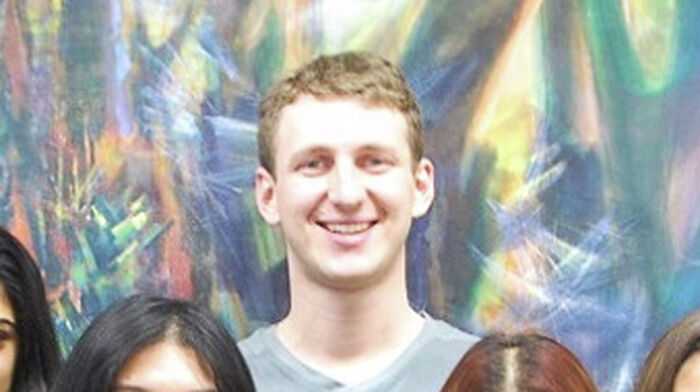As we increasingly receive our news from social media, political pluralism is at risk
Responding to the Cambridge Analytica scandal, Tom Toon questions the role that social media is playing in the political realm

It’s free, and it always will be! As ever, the news that no lunch comes complimentary seems to come as a great shock to all those who previously placed great faith in Facebook’s watertight privacy policy.
Amid all this brouhaha, Jeremy Corbyn has made his position crystal clear: he will not be jumping on the #DeleteFacebook bandwagon. On the one hand, it is refreshing to see a public figure refusing to bow to such an insincere movement: just how many people will regret their ephemeral indignation when they can no longer remember anyone’s birthday? More to the point, however, Corbyn himself recognised that cutting off access to 1.4 million potential voters would be the political equivalent of shooting himself in the foot.
“No-platforming speakers because of borderline views is one thing, but refusing to even countenance different socioeconomic positions is another”
In his words, “online is where it’s at”. This may be very ‘down with the kids’, but it reveals a salient truth: social media is now the unquestionable battleground for electioneering, with the traditional press increasingly relegated to the periphery.
Though many factors contributed to Labour’s resurgence in last year’s snap election, a rapid change of heart from the majority of British newspapers cannot be counted among them. In particular, The Sun rallied against the Labour leader from day one, culminating in an infamous plea urging its readers not to “chuck Britain in the Cor-bin”. In less vitriolic fashion, The Telegraph, The Times and The Evening Standard proffered similar advice.
However, none of these publications had properly weighed up the popularity of the Labour leader on social media. By the end of the campaign, Corbyn had three times as many Twitter followers as his rival Theresa May, and on a party level, Labour saw their number of Facebook likes shoot up 75%, compared to a mere 10% for their Conservative counterparts.
Of course, Labour have their well-oiled team of marketers and analysts to thank for targeting the youth and appealing to them in their own language. But, on a deeper level, this inequality on social media reveals a serious problem about the way these platforms can stifle openness and genuine debate.
Though it is sometimes hard to believe it, newspaper articles are generally written by professional journalists and always verified by editors who have legal sanctions threatening to crush them each time they go to press.
On social networks, however, it is becoming increasingly difficult to separate the news from the noise. According to a survey carried out in August 2017 by the Pew Research Center, over three quarters of Americans under the age of 50 get at least some news from social networks – predominantly Twitter. Limited until recently to 140 characters, this platform does not exactly lend itself to nuanced perspectives, as exemplified by vulgarian par excellence Donald Trump, and more importantly, the viral nature of the web enables jingoistic soundbites to assume validity simply in virtue of their visibility.
Consideration must also be given to the psychological mechanisms that often lead people to post content on these sites in the first place. In short, it seems that the need for us to belong in a group makes us more likely to seek affirmation according to the rules of the group rather than through genuine personal expression. It is really just a numbers game, the sole aim being to amass as many likes as the pertinence of the hashtag will allow.
Crucially, this online group identity appears to align itself pretty neatly with what many voters perceive to be left wing policies. Indeed, that the current Tory government is proving to be pretty toothless is somewhat beside the point. Championing Labour appears to facilitate inclusion – ‘for the many, not the few’ – whereas it is evidently less fashionable to back a ruling party whose ideology, at least in theory, is based around empowering the individual to change his or her own lot without state intervention. In practice, this can never completely work, because it does not factor in embedded social, economic and racial prejudices that, to modify Orwell’s felicitous phrase, serve to make some individuals more equal than others. Nevertheless, the fact still remains: more than one political model exists, and such pluralism is critical for any democracy to function.
Yet the internet community – the largest and supposedly most inclusive of them all – has yet to diversify sufficiently to allow the plurality of perspectives that actually do exist to compete for attention. And, this echo chamber of self-affirmation will remain hermetically sealed to opinions from the credible right for as long as they are tarred by the ugly brush of Britain First bigots. No-platforming speakers because of borderline views is one thing, but refusing to even countenance different socioeconomic positions is another. Debate should be exactly that – an open space where opposing viewpoints can be aired and shared. Shy Tory or Limousine Liberal? Now there’s a debate for you.
 News / Pembroke to convert listed office building into accom9 December 2025
News / Pembroke to convert listed office building into accom9 December 2025 News / Gov declares £31m bus investment for Cambridge8 December 2025
News / Gov declares £31m bus investment for Cambridge8 December 2025 Features / Searching for community in queer Cambridge10 December 2025
Features / Searching for community in queer Cambridge10 December 2025 News / Uni redundancy consultation ‘falls short of legal duties’, unions say6 December 2025
News / Uni redundancy consultation ‘falls short of legal duties’, unions say6 December 2025 Lifestyle / Into the groove, out of the club9 December 2025
Lifestyle / Into the groove, out of the club9 December 2025










